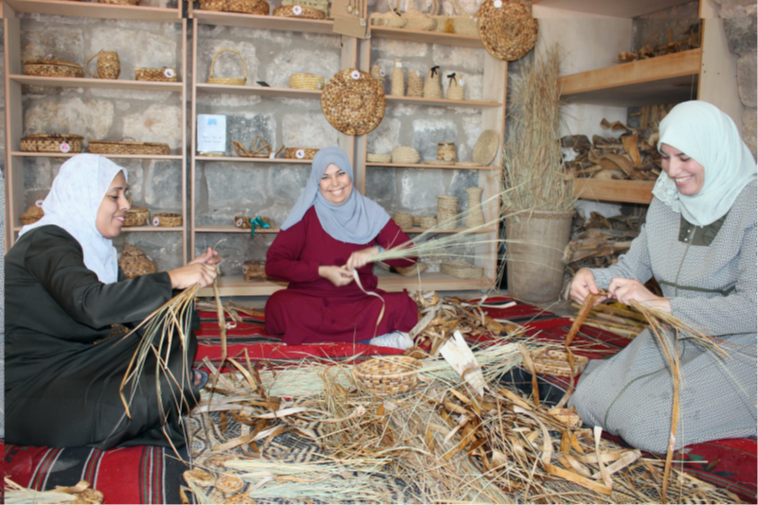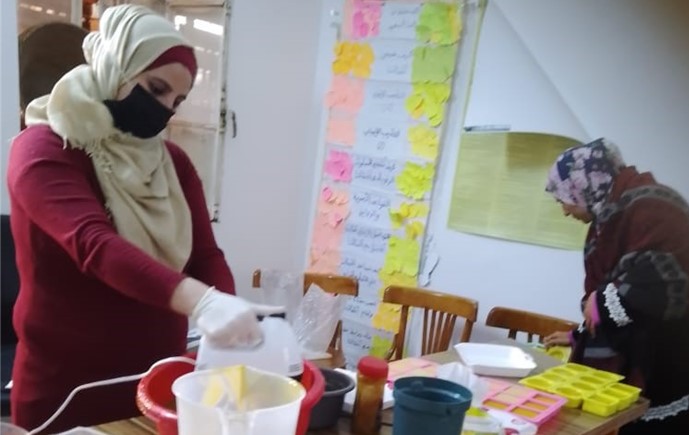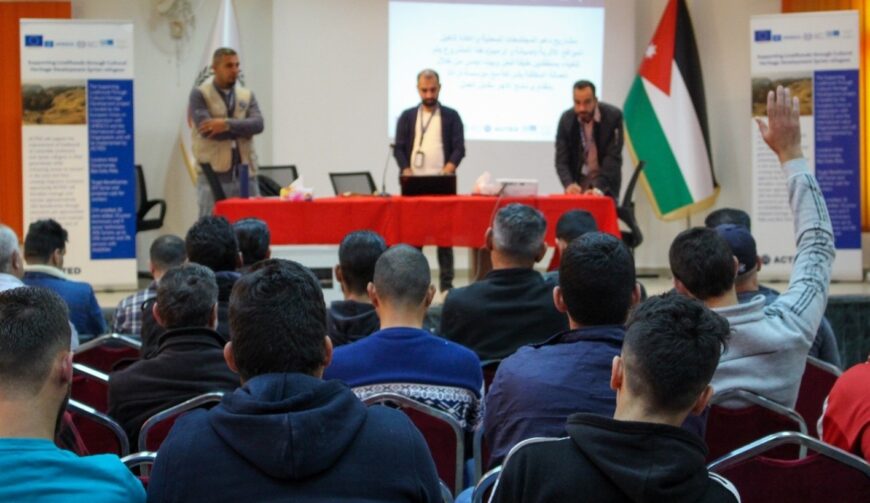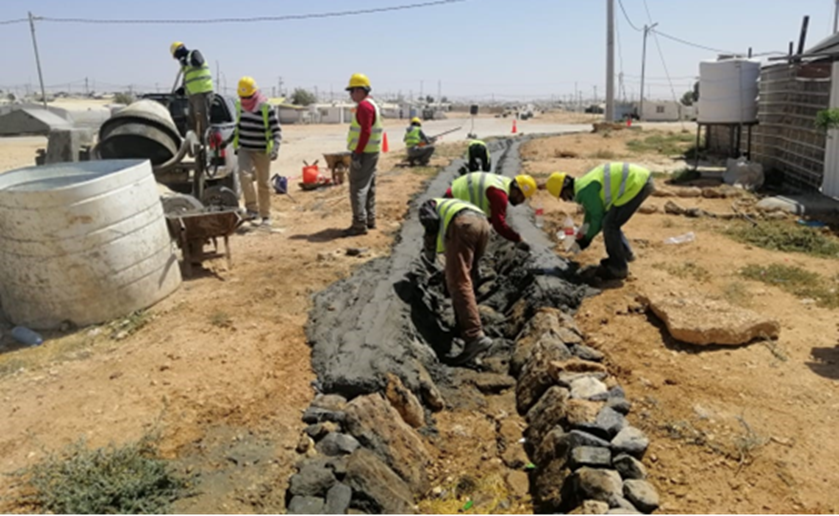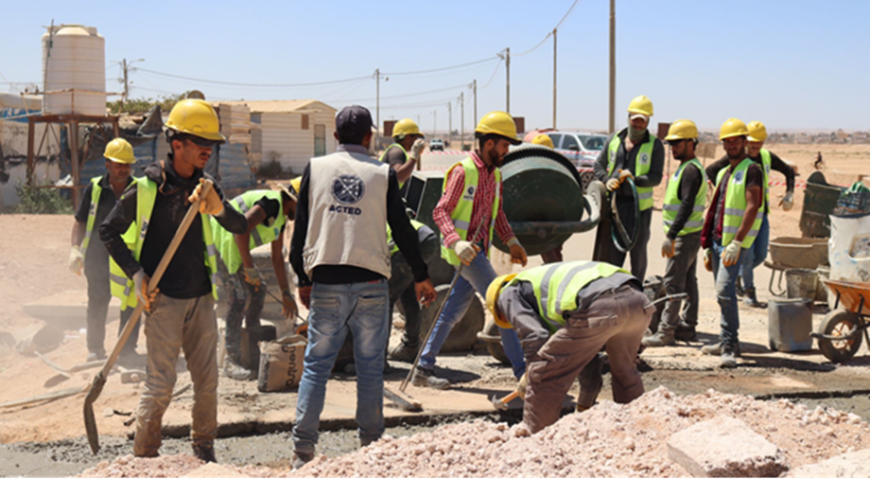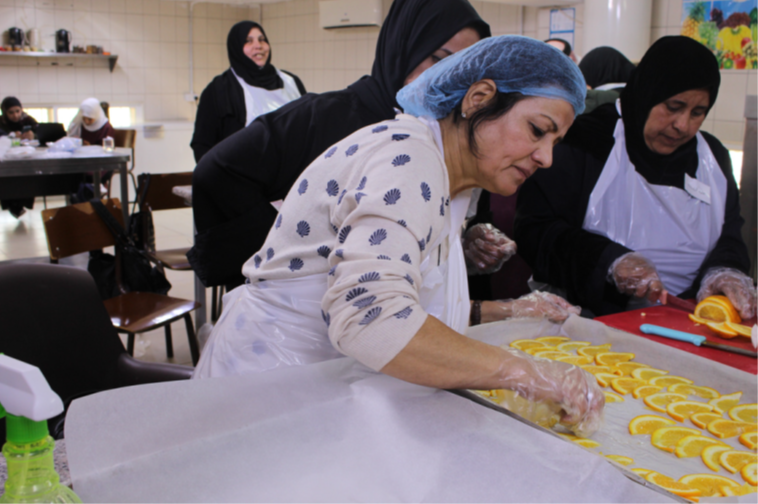Jordan remains one of the countries most affected by the Syrian crisis, and hosts the second highest population of Syrian refugees, with an estimated total of 1.3 million refugees in the country, including non-registered individuals. The influx of refugees since 2011 compounded Jordan’s challenges, which include slow economic growth, a fragile labor market, and high unemployment. These have been exacerbated by regional conflicts, and the COVID-19 pandemic. Additionally, Jordan has one of the lowest female labor force participation rates (14%) and is heavily reliant on energy imports, which account for about 20% of its GDP.
Jordan is also characterized by arid climate and desertification, which further impacts vulnerable groups, particularly those dependent on natural resources such as farmers and agricultural workers. As the second most water-scarce country in the world, over 90% of low-income households report critical water vulnerability in Jordan. Climate change, along with mismanagement and gaps in infrastructure (solid waste, sanitation and water in particular), have contributed to the strain on Jordan’s scarce natural resources, impacting livelihoods, access to basic needs and resilience to environmental changes. This particularly impacts food security, where Jordan is ranked the third most food insecure Arab country out of the 13 assessed in the Global Food Security Survey (2021).
Since 2008, Acted has been addressing the evolving needs of refugees and vulnerable Jordanians across several governorates in Jordan. Acted focus on transitioning from emergency relief to sustainable solutions through three main programmatic pillars: Water, Sanitation, Hygiene (WASH) and Sustainable Resource Management, Livelihoods and Economic Development and Civil Society Engagement.
Acted in Jordan
Acted is committed to addressing these issues through a blend of humanitarian aid and development programs that emphasize livelihoods, localization, WASH, governance, and social inclusion. Acted’s work involves close collaboration with local communities, government bodies, civil society, and inter-agency groups to meet immediate needs while fostering long-term, sustainable development in livelihoods, infrastructure, environmental protection, institutional capacity and social cohesion. Acted also promotes circular economy models to create positive social, environmental and economic impact throughout its programmatic strategies in Jordan. To this end, Acted aims to accelerate waste reduction, reuse and regeneration of natural systems, while also creating inclusive and low-carbon economic opportunities.
3ZERO in Jordan
Acted aligns with the global 3ZERO Strategy (2020-2025), focusing on Zero Carbon, Zero Poverty, and Zero Exclusion. In Jordan, this commitment is reflected in all programs through the promotion of inclusive and low-carbon solutions to address environmental and poverty challenges.
For example, in central and northern Jordan, this commitment is reflected through Acted’s project aimed at supporting economic growth and sustainable diversified income creation in Jordan.
Firstly, to achieve Zero Poverty, the project supported vulnerable farming households in accessing year-round income and reducing expenditures through perma-gardening and income-diversification activities. This support significantly improved economic stability, with 72% of beneficiaries reporting enhanced financial resilience and 343 individuals rising above the national poverty line.
Secondly, in pursuit of Zero Exclusion, the project focused on strengthening the technical production skills of Syrian and Jordanian daily agricultural workers. Advanced training in sustainable agricultural practices, decent work conditions, and business development was provided, promoting inclusivity and improving access to better employment opportunities.
Finally, in line with Zero Carbon goals, the project contributed to environmental sustainability by endorsing climate-smart agricultural practices and supporting permagarden implementation.
Notably, 98% of beneficiaries engaged in perma-gardening saw increased agricultural production, and 99% of those involved in income-diversification activities launched their own businesses.
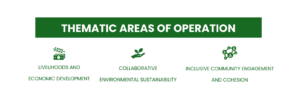
Localization and Strategic Partnerships
Acted is advancing its localization efforts through strategic partnerships and capacity-building programs that are pivotal in fostering sustainable development. Our approach focuses on collaboration and mutual growth, leveraging both local and international resources to achieve impactful outcomes.
THRIVE: Grounded in the interdependence of ecosystems, livelihoods, and rural markets, THRIVE promotes a symbiotic relationship between these elements, ensuring they function collaboratively rather than in competition. By addressing the challenges of degradation and desertification, Acted champions nature-based solutions, livelihood diversification, and social cohesion. Acted Jordan’s 2023 project aimed at supporting economic growth and sustainable diversified income creation in Jordan was based on this approach.
GOCA Tool: As part of the EU-funded Jordan Guardians Project (2022), Acted employs the Global Grassroots Organizational Capacity Assessment (GOCA) tool to bolster the capacity of national and grassroots civil society organizations. This initiative focuses on governance, financial management, and advocacy, aiming to improve operational and institutional effectiveness. Through this mutual capacity-building approach, we strengthen the role of civil society in policy dialogue and sustainable development, reinforcing our collaborative efforts for a more impactful and localized approach to development.
Circular Economy Assessments: In 2021, Acted conducted a comprehensive circular economy assessment to explore market potentials and investment opportunities for circular approaches. This assessment, funded by the EU Madad Fund and BMZ, analyzed various value chains and municipal waste management, providing recommendations to shift from linear to circular economic models. A second assessment, funded by UNEP and in partnership with IMPACT Initiatives, focuses on integrating circular economy models into the humanitarian sector, developing a toolkit for stakeholders to adapt their programs accordingly.
